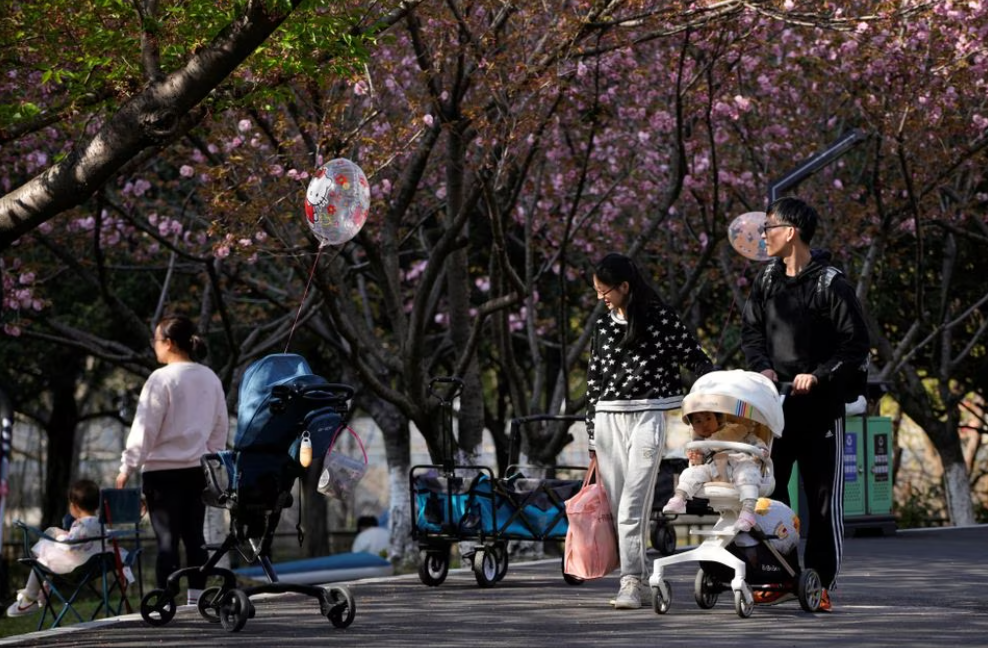
China’s leading online travel agency, Trip.com, is implementing a new childcare subsidy program worth 1 billion yuan ($138 million) to encourage its workforce of 32,000 employees to have children.
Under the policy, employees who have been with the company for a minimum of three years will receive an annual bonus of 10,000 yuan ($1,376) for each newborn child from their first birthday until they turn five. The initiative will commence on Saturday.
James Liang, the executive chairman of Trip.com, expressed in a statement that the introduction of this childcare benefit aims to provide financial support that enables employees to start or expand their families while pursuing their professional goals.
This move by Trip.com follows the footsteps of smaller Chinese companies and comes at a time when China is grappling with a demographic crisis. In 2022, China experienced its first population decline in over six decades, with a birth rate of only 6.77 births per 1,000 people—the lowest since the establishment of Communist China in 1949. As a result, China now ranks as the world’s second most populous nation, trailing behind India according to the United Nations.
China officially ended its long-standing “one-child” policy in 2015, initially permitting married couples to have two children. However, after a brief increase in 2016, the national birth rate has continued to decline.
This issue raises concerns among policymakers due to its potential profound implications for the country. It contributes to an aging population, could impact economic growth, and strain the tax revenue and pension system.
At Trip.com, the bonus will be available to all full-time employees who have served the company for at least three years, regardless of their gender, position, or work location, as stated in a separate Chinese statement released by the company.
Liang expressed his belief in the government’s support for families with children, suggesting that financial assistance should be provided to alleviate the costs of raising children and enable more young people to fulfill their desire for larger families. He also emphasized that companies can contribute within their capabilities to create a favorable environment for reproductive decisions.
Similar initiatives have been undertaken by other companies in China. Beijing Dabeinong Technology, an agricultural company, announced last year that it would offer a cash bonus of 90,000 yuan ($12,391) to employees who have a third child. Birth of a first or second child would result in payments of 30,000 yuan ($4,130) and 60,000 yuan ($8,260) respectively.
In addition, QiaoYin City Management, an urban sanitation services firm, recently declared a bonus of 100,000 yuan ($13,759) for employees giving birth to a third child. The company aimed to alleviate the financial burden on the families of young employees and respond to the government’s call to promote childbirth.
Beyond the declining birth rate, China is also witnessing a decrease in the number of marriages, which could compound the demographic challenges. Data from China’s Ministry of Civil Affairs revealed that around 6.83 million couples got married in 2022, marking a decline of approximately 10.5% compared to the 7.63 million marriages registered in 2021. This figure represents the lowest number recorded since the ministry began publishing such data in 1986.
In response, policymakers have relaxed birth limits, allowing up to three children, and have implemented efforts to encourage larger families. These initiatives include strengthening maternity leave, providing tax deductions, and offering other benefits to families. However, the desired results have yet to materialize due to shifting gender norms, high living and education costs, and economic uncertainties.
Follow our socials Whatsapp, Facebook, Instagram, Twitter, and Google News.








